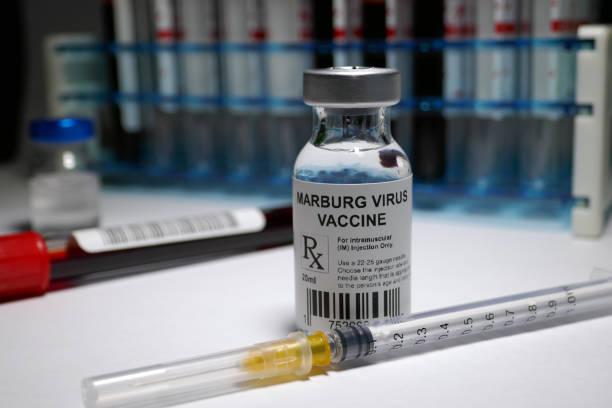With the ongoing outbreak of the Marburg virus in some regions, travelers need to be cautious and well-informed about the risks and the necessary precautions to ensure their safety. The World Health Organization (WHO), the U.S. Centers for Disease Control and Prevention (CDC), the European Centre for Disease Prevention and Control (ECDC), and the UK Foreign Office have all issued relevant advice to guide travelers in making safe decisions. Below is a summary of their recommendations and travel advice.
What is Marburg Virus?
Marburg virus is a highly contagious and deadly virus that causes Marburg Virus Disease (MVD), a hemorrhagic fever similar to Ebola. It is transmitted through direct contact with the bodily fluids of infected individuals, contaminated surfaces, or infected animals such as bats. The virus has a high fatality rate, and there is currently no specific treatment or vaccine.
Travel Recommendations
World Health Organization (WHO)
The WHO has not recommended any travel or trade restrictions with Rwanda or any other countries affected by the Marburg virus. However, the organization advises travelers to stay informed about the outbreak and take basic precautions to minimize the risk of exposure. WHO encourages all travelers to monitor official channels for updates on the outbreak and to follow local health authority guidance when in affected areas.
U.S. Centers for Disease Control and Prevention (CDC)
The CDC has issued a Level 2 travel notice for Rwanda, which means that travelers should practice enhanced precautions. Key recommendations include:
Avoiding contact with sick individuals who show symptoms consistent with Marburg Virus Disease (MVD), such as fever, vomiting, diarrhea, or unexplained bleeding.
Avoiding healthcare facilities in outbreak zones unless seeking urgent care.
Obtaining travel insurance that covers medical evacuation and treatment for infectious diseases before traveling.
Monitoring for symptoms of MVD for 21 days after leaving an outbreak area, such as fever, headache, muscle pain, rash, vomiting, or unexplained bleeding. In case of symptoms, travelers should immediately isolate and seek medical care.
CDC also advises travelers to stay updated on the outbreak and prepare for potential changes in travel conditions or advisories.
European Centre for Disease Prevention and Control (ECDC)
The ECDC emphasizes the importance of travelers being aware of the ongoing Marburg outbreak and following the guidance of local health authorities. Their key recommendations include:
Avoiding contact with individuals showing MVD symptoms and steering clear of healthcare facilities in affected areas for non-urgent medical reasons.
Avoiding wildlife habitats such as caves or mines that may be inhabited by bats, and refraining from handling or consuming bushmeat.
Reporting symptoms upon return from affected areas. Travelers returning to the EU/EEA should promptly seek medical attention if they develop symptoms consistent with MVD and disclose their travel history to healthcare providers.
UK Foreign Office
The UK Foreign Office has not yet advised against travel to Rwanda, but it acknowledges the outbreak on its website and urges travelers to consult local authorities before traveling. Organizations that send workers to affected areas are encouraged to register with the UK Health Security Agency (UKHSA) Returning Workers Scheme. This allows returning workers to be monitored for potential symptoms of MVD.
General Precautions for Travelers
Travelers heading to regions affected by the Marburg virus should consider the following precautions:
Avoid close contact with sick individuals, especially those showing symptoms such as fever, vomiting, diarrhea, or unexplained bleeding.
Steer clear of healthcare facilities in affected areas unless necessary.
Avoid high-risk activities such as visiting bat-inhabited caves or handling wildlife, particularly primates, bats, and bushmeat.
Monitor for symptoms for 21 days after leaving the outbreak area and seek immediate medical attention if symptoms develop.
Stay informed through reliable sources like the WHO, US CDC, Africa CDC, ECDC, and local health authorities about any changes in the outbreak and travel advisories.
Conclusion
While the Marburg virus outbreak poses serious health risks, taking proper precautions can significantly reduce the chances of exposure and infection. Travelers to affected areas should stay informed, avoid risky behaviors, and be prepared for potential changes in travel restrictions. By following the guidance of health organizations like WHO, CDC, ECDC, and the UK Foreign Office, travelers can protect themselves and prevent further spread of the virus.
References:
World Health Organization (WHO). Marburg Virus (https://www.who.int/news-room/fact-sheets/detail/marburg-virus-disease )
U.S. Centers for Disease Control and Prevention (CDC). Marburg Virus Travel Notice (https://wwwnc.cdc.gov/travel/notices/level2/marburg-rwanda )
European Centre for Disease Prevention and Control (ECDC). Marburg Virus Disease (https://www.ecdc.europa.eu/en/marburg-virus-disease )
UK Foreign Office. Foreign Travel Advice (https://www.gov.uk/foreign-travel-advice/rwanda/health )


